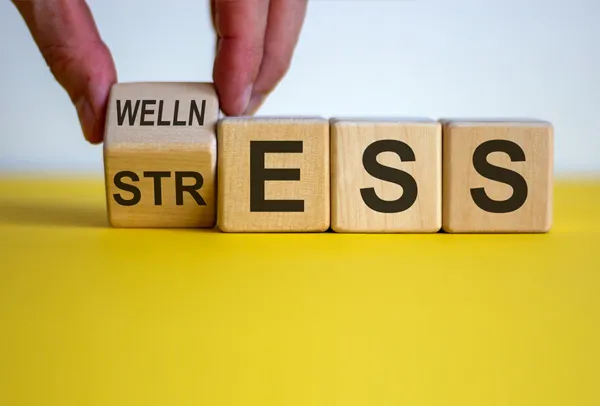
Signs and Symptoms of Stress
What is stress?
Although we can all relate to and know what it is like to feel stressed, there is no universal definition. A simple explanation of stress is that it involves being placed under pressure from an event or situation (real or perceived) and believing that we don’t have enough resources to cope. We think that the demands of the situation outweigh our abilities to manage the situation.
In terms of a physical response, stress is the body’s reaction to feeling threatened or under pressure. Too much stress can affect our mood and physical health. Experiencing a lot of stress over a long period of time can also lead to a feeling of physical, mental and emotional exhaustion, often called burnout.
Stress is also a very common reaction to everyday life and being under pressure is a normal part of life. Low-level stress can sometimes even be helpful or motivational. It can help you take action, feel more energised and get results. But if you often become overwhelmed by stress, these feelings could start to be a problem for you.

Symptoms of stress
If you are stressed you may notice some of the following symptoms:
- Feeling overwhelmed
- Racing thoughts or difficulty concentrating
- Irritability
- Feeling constantly worried or anxious
- Lacking in self esteem
- Difficulty sleeping or feeling tired all the time
- Eating more or less than usual
- Frequent headaches or body pains
Practical tips
Stress Management Tips
- Identify the stressor
Identifying what you think might be causing the stress and then see if there are some things within your control to manage better. Some things will be beyond your control, depending upon the daily demands of your specific job role, but perhaps you can control some aspects, such as scheduling to have a short lunch break each day away from your desk, or to go to bed earlier so that you have more energy to cope the next day. - Build regular exercise into your life – as well as being part of a healthy balanced lifestyle and giving you more energy, many people find that exercise helps them to unwind and de-stress.
- Make sure that you eat and sleep well.
- Take time out for family, friends and hobbies. Most of us know that this is important but we don’t always make time for it. Set aside one evening a week where you enjoy a hobby, or set aside one day of the weekend for some relaxation or social time with a friend.
- Learn calming techniques such as breathing and relaxation, to support your mind and body to become more relaxed. These techniques require practice but can be really helpful with regular use.
- You may wish to speak to a registered healthcare professional about stress and anxiety and strategies to help reducing stress if you are aware this is impacting your daily functioning and impacting your mood.
For more information or to book an appointment, call 800 4272 or email [email protected] .












